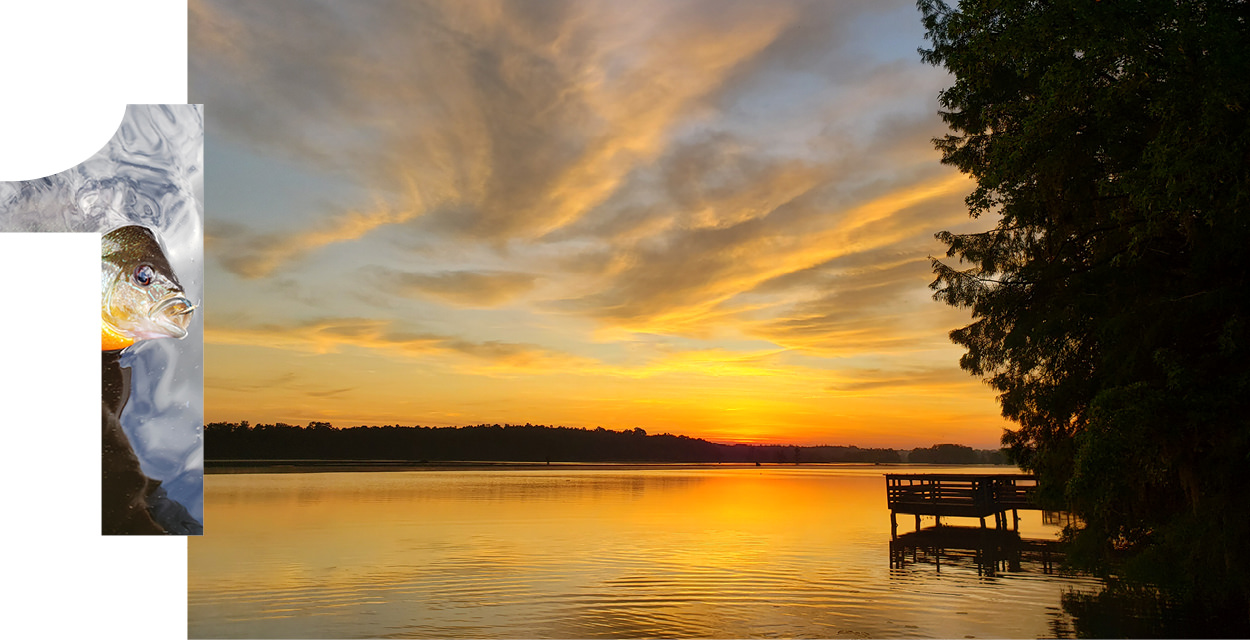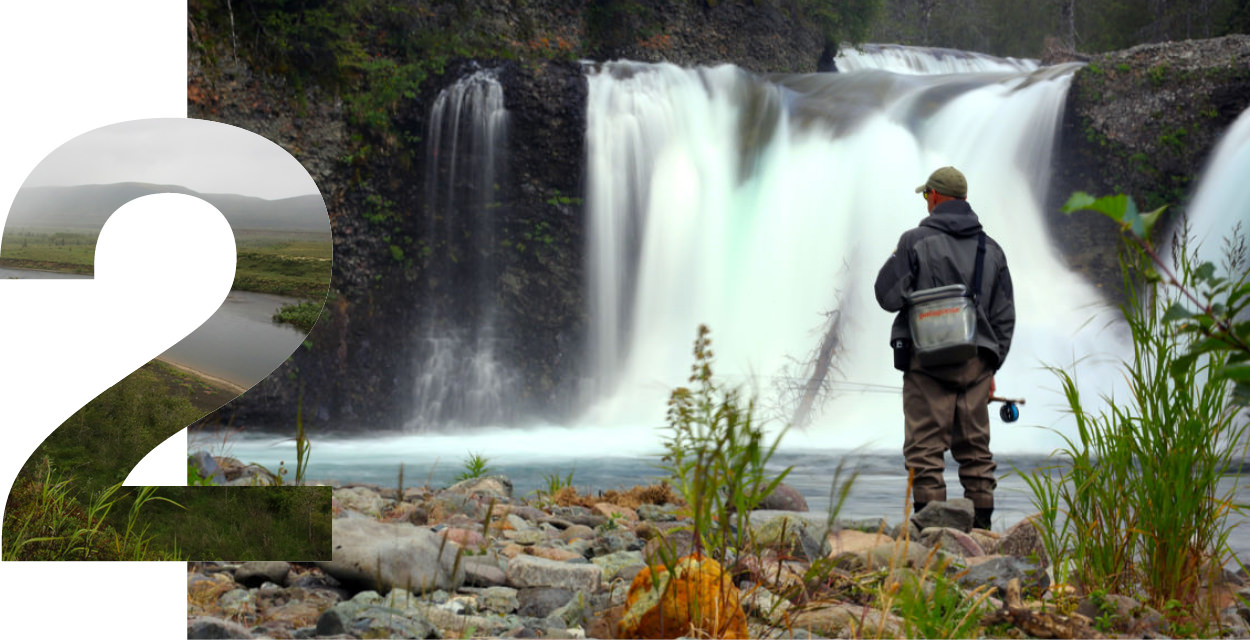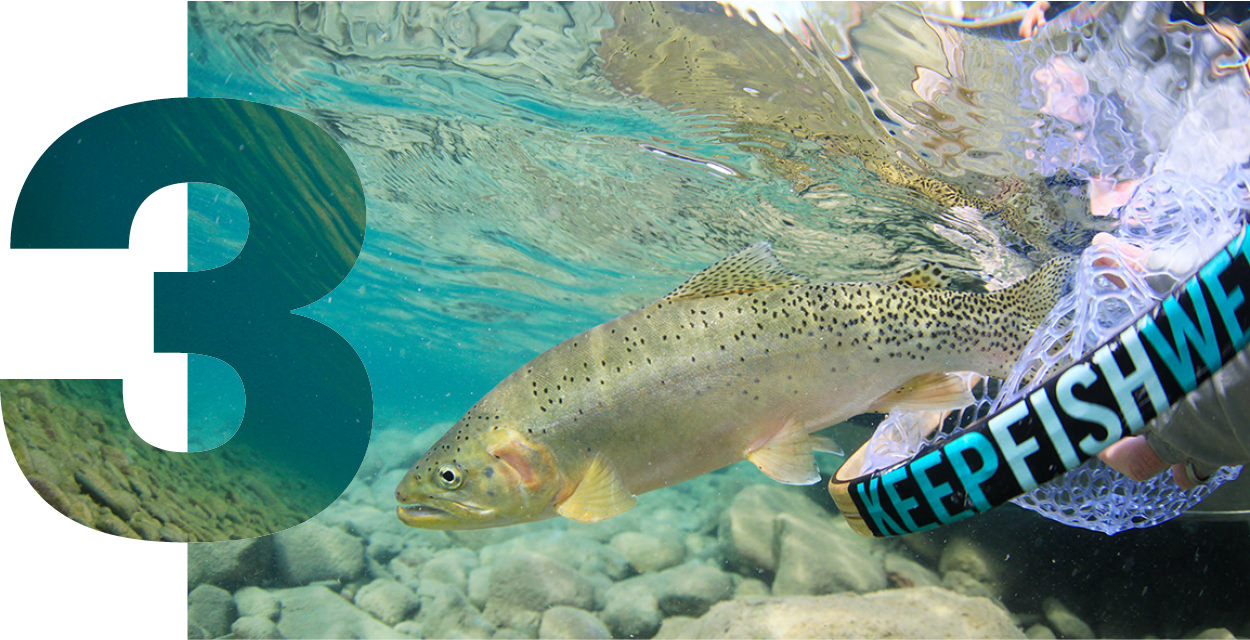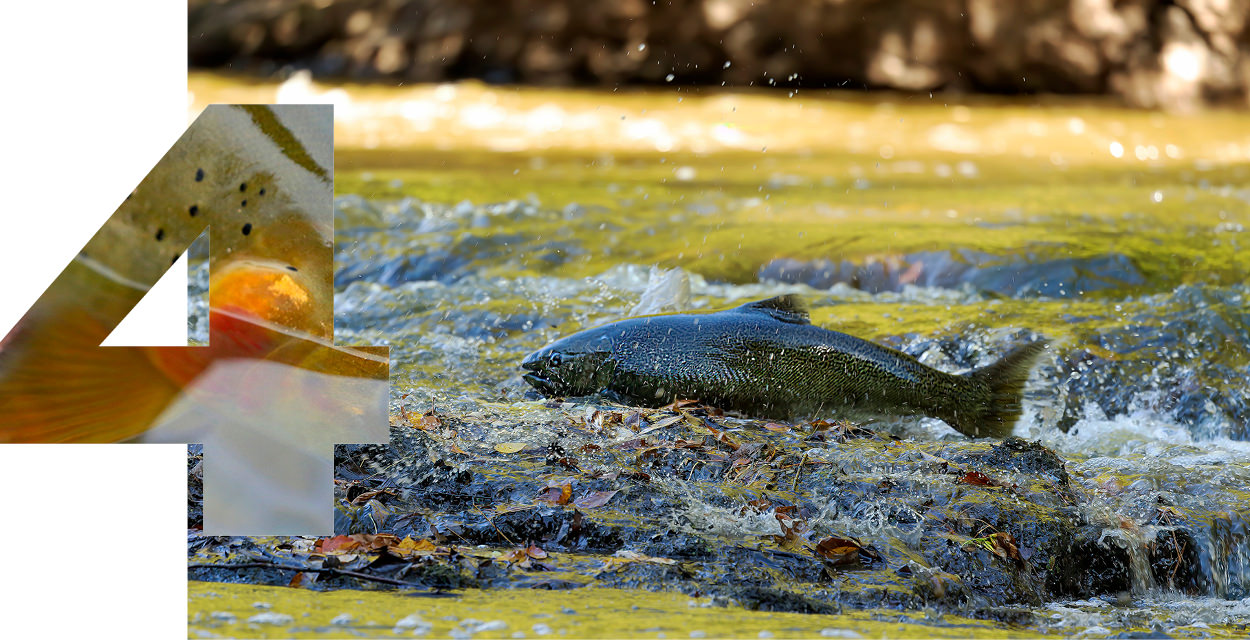
Conservation of Fish Habitats
ALL FISH, ALL WATERS has been a core principle of Fly Fishers International for more than 50 years. Approximately 3.5 million miles of rivers and streams and 41.7 million acres of lakes exist just in the lower 48 states alone from cold waters at our mountain tops to the vast warm water that eventually flows into our bays and estuaries. These and other important fish habitats in North America span from the Everglades in Florida to Bristol Bay in Alaska. Some of these habitats and the fishes they support are critically threatened. YOUR HELP IS NEEDED to protect our natural heritage and the legacy of fly fishing. Fly fishers' voices will not be heard without YOUR SUPPORT!

Conservation Action & Advocacy
FFI monitors dozens of important conservation issues each year and during 2020-2021 delivered 27 formal conservation actions to administrations and policy makers on high-profile conservation matters. Each action was based on the best available science. Our Conservation Actions spanned a range of issues, including protection of Bristol Bay in Alaska, protecting key spawning grounds of marine fishes in Florida Bay, protection of the Boundary Waters in Minnesota from mining and support of a comprehensive proposal for removal of four out-of-date dams in the Lower Snake River in Washington to make possible restoration of historic populations of migrating steelhead and salmon in Idaho.
Bristol Bay in Alaska is home to the largest salmon fishery in the world. Five Pacific salmon species, rainbow trout, and dolly varden depend upon its network of lakes, rivers, and streams are seriously threatened should the proposed Pebble Mine ever be permitted. FFI continues to work with its many Conservation Partners to secure permanent protection of this valuable natural resource for regional heritage and economy and for fly fishers around the world.
The Everglades and Florida Bay are a vast wetland system that support a unique diversity of fresh and saltwater sport fishes that are of great importance to fly fishers. FFI collaborated in efforts this past year to support increased funding for the Everglades restoration from decades of dewatering for agricultural practices, and successfully supported the Florida Fish and Wildlife Commission to close the Western Dry Rocks Spawning Area to fishing during a 4-month spawning period.
The Boundary Waters Canoe Area Wilderness includes more than 1,100 glacial lakes and hundreds of miles of rivers and streams is one of the most visited Wilderness Areas in the nation. The area supports tremendous fly fishing opportunities for smallmouth bass and other species. But this area too, is threatened with significant damage from acid runoff from proposed copper and other minerals mining. FFI has joined in the effort to encourage law makers and agencies to withdraw significant portions of the wilderness from mining and provide permanent protection to the wilderness, its many natural resources and fisheries.
Wild Steelhead & Salmon are threatened with extinction in the Pacific Northwest, primarily due to now outdated dams and other water diversions that for decades have impeded natural migration of these species to upstream spawning sites. Survival outlook of these species is dismal at best without management action and FFI joined its conservation partners to seek injunctive relief and more importantly to support the proposal by Congressman Mike Simpson to breach four such dams in the Lower Snake River to restore historic migration paths for these salmonids. The proposal offers the only hope for salmon and steelhead recovery with new strategies for accommodating communities, irrigators, shippers, power generation and native peoples.

Conservation Education
Conservation education is provided by the FFI Learning Center through online materials, in-person presentations and “FFI Online Webinars” on all aspects of fly fishing from learning to cast, to fly tying and conservation, to safe handling of fishes and habitat protection.

Conservation Grants
Fly Fishers International awards grants each year to FFI Councils and Clubs and other conservation-minded organizations to make possible local projects that benefit fisheries, habitat, and exemplify FFI's conservation philosophy. Projects often range from local habitat restoration or education activities to very large projects where FFI grants encourage other organizations and agencies to invest with FFI in a significant way.
Crandall Creek Yellowstone Cutthroat – This Wyoming project will preserve the 90%+ purity of Yellowstone cutthroat trout in the Crandall Creek system, a tributary of the Clarks Fork of the Yellowstone River. The FFI grant completes funding the Greater Yellowstone Coalition's engineering design of a barrier to upstream invasion of competing rainbow trout into Crandall Creek.
Pueblo Tailwater Erosion Project – This grant assists the Southern Colorado Greenback Chapter of Trout Unlimited with funding for phase 1 of a local project to restore and maintain eroded spawning habitat for rainbow and brown trout in the Pueblo Tailwater section of the Arkansas River in Colorado. Phase 1 will provide the engineering design necessary to the restoration effort.
Pere Marquette River Embankment Stabilization – This grant assists funding for a habitat restoration project with the Conservation Resource Alliance of Michigan to repair and stabilize a severe bank erosion problem in the heart of the watershed. The Pere Marquette is a very important destination for fly fishers in Michigan.
Boise River Side Channel Gravel Augmentation – This grant assists Boise Valley Fly Fishers to restore spawning gravel to a side stream of the Boise River. Loss of spawning gravel is a systemic problem occurring below hydroelectric dams in the Boise River. Gravel augmentation has been a successful method for restoring spawning habitat for trout in this system.
Keep Fish Wet Best Practices Video – This grant funds provide funds to produce an educational video that illustrates best methods for safe handling and release of fish to minimize mortality. The message is consistent with FFI’s “catch and release” philosophy when fish are not kept for consumption.